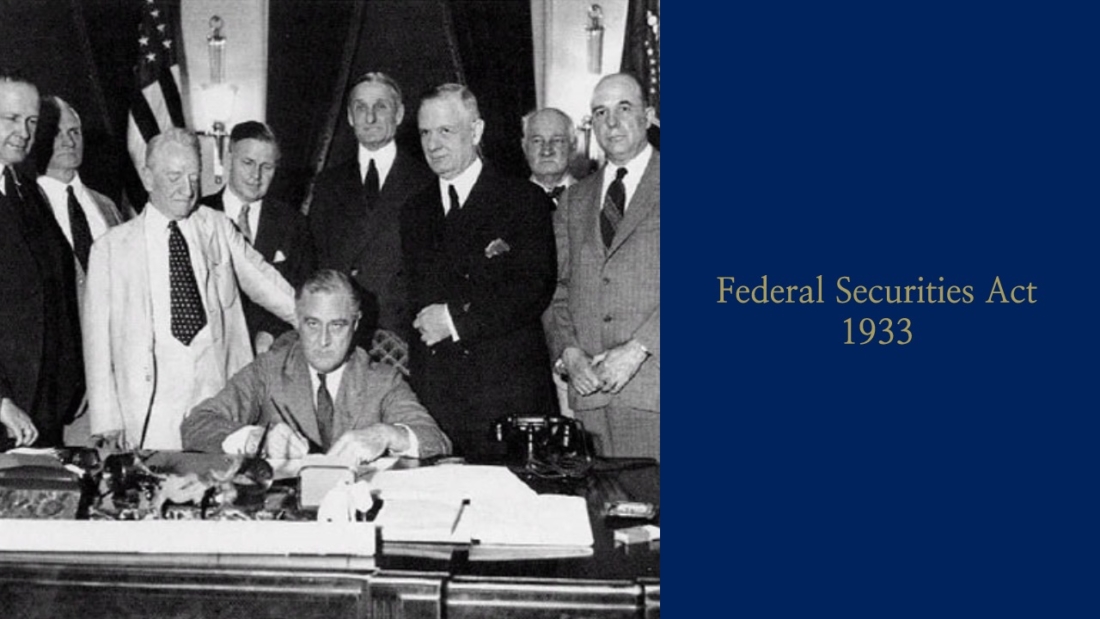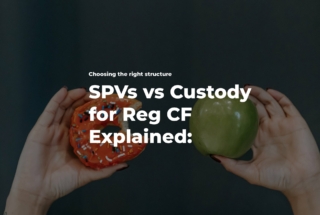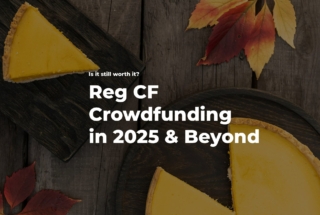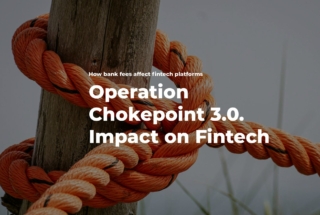A Guide to Starting a Regulation S Crowdfunding Platform
No time to read? Let AI give you a quick summary of this article.
Disclaimer: This article is for informational purposes only and should not be considered legal advice.
What if you want to encourage non-US investors, both professional and retail, to take part in the offerings under Reg D? The answer is Reg S, the international sister of Reg D.
Reg S and Rule 144A go back a long way to the 1933 Securities Act.

The Commission adopted the regulation of offshore offers and sales in 1990. Although there had always been enough regulation for different offerings, fraudulent and manipulative schemes were still mushrooming.
That’s why the SEC adopted Reg S crowdfunding rules as a means of combating fraudulent and manipulative schemes, especially for the deals connected with securities of “microcap” companies.
These securities are the most vulnerable ones as they provide very little info to investors.
The offshore regulation1 provides an exemption from registration for securities offered and sold outside of the United States.
It covers both equity and debt securities. Reg S is only for those offerings which are made “in good faith and not as a means of circumventing the registration provisions of the Securities Act”.
There are two main rules, 903 and 904.
- Rule 903 applies to the offers of securities made by issuers and distributors.
- Rule 904 applies to resales of securities that already have been issued.
Both rules are often referred to as safe harbors.
There are two conditions of the safe harbor that should be met:
- The transaction should be offshore, which means it cannot be made to a US person or someone physically;
- There can be no direct selling efforts in the United States, which means no advertising or marketing in the United States or aimed at US investors.
Who may rely on Regulation S crowdfunding?
- the US and foreign issuers;
- distributors;
- affiliates of the issuer;
- any persons acting on behalf of the mentioned persons;
- Non-US resident purchasers;
- US residents.
Who may not rely on Reg S?
- those companies intending to raise money from non-US accredited investors, they can use Rule 506(c) instead;
- open-end investment companies, investment trusts registered or required to be registered under the “1940 Act”.
So, by and large, companies opt for offshore transactions if they a) want to attract non-accredited backers outside the US; b) want to avoid the headache related to the files filling and investor status verification.
Keep in mind that if you’re offering and selling securities outside the US, you have to comply with national and local regulation.
Why not simply attract foreign backers under Reg A+, Reg D or Reg CF rules?
Reg S allows crowdfunding companies to collect money from foreign backers without regard to their income or net worth level.
What you will learn in this post:
Types and key features of offshore transactions
What types of transactions2 are conducted under Regulation S?
- Standalone Reg S crowdfunding offerings conducted in one or more non-US countries;
- Combined Reg S offerings outside the US and Rule 144A offerings inside the US;
- Reg S continuous offering programs for debt securities, including various types of medium-term note programs.
Rule 144A3 is oftentimes paired with Reg S offerings. The rule allows companies to offer the same securities to US-based Qualified Institutional Buyers (QIBs) acting for their account and investing at least $100 million in securities of issuers not affiliated with the entity ($10 million for a broker-dealer).
Rob Turner from Manhattan Street Capital4 says that Rule 144A is a highly attractive opportunity to raise money as it has nominal filing requirements and lets issuers make offerings public with very little up-front expenses.
Key features of offshore transactions:
- conducted using general solicitation and advertisements;
- paired with Reg D offerings, which is a match made in heaven. The former is for foreign investors, the latter comes with the same securities, but for US investors;
- issuers don’t necessarily have to be aware of the status of the investor;
- there’s no limit on how many investors can take part in deals, but they must be outside of the US;
- securities acquired in a Rule 144A transaction are considered to be “restricted” and can’t be freely tradable after the resale;
- securities are generally sold at a very large discount of the market price (30-80% discounts);
- the distribution compliance period depends on the category of transactions involving debt and equity securities.
The bottleneck of Reg S offerings is that they don’t protect the rights of foreign investors.
How to start a Regulation S crowdfunding platform?
Crowdfunding companies are allowed to conduct offshore transactions without SEC registration. Typically, companies integrate other methods (e.g. Reg D Rule 506c) to raise capital alongside Reg S offerings.
Bernard Devieux from the Crowdfunding Attorney advises5 issuers to create separate websites. One will serve for the Rule 506(c) offerings and the other – for offshore transactions. Also, it’s a good idea to make the Reg S website invisible in the US with IP addresses.
The website for Reg S offering should be equipped with proper disclaimers and the verification module to check whether an investor is based outside the US.
By doing so, companies meet the SEC’s requirement for “no “offers” and “selling efforts” to be made in the US.
Requirements for offshore offerings1:
- disclosure of any “bad actor” incidents;
- registration statement submitted with a prospectus;
The registration statement includes all relevant info about the securities and the issuer. A prospectus is for advertising the issuer’s securities to potential investors.
- due diligence3 procedures done by underwriters and the counsel on the transaction;
- comfort packages from outside US counsels to provide underwriters with the adequacy of the disclosure.
The SEC carefully validates the records from the registration statement and checks it for inaccurate hidden info before approving. Registration statements often become public and available on the SEC’s Electronic Data Gathering, Analysis, and Retrieval system, EDGAR, platform.
Downsides of offshore transactions according to experts6:
- The process can be extremely expensive due to accounting, legal fees, plus ongoing expenditures;
- Filling the registration file may take long as the doc contains 100 pages;
- Reg S securities must be issued for at least one year and then resold in the US under the provisions of rule 144.
Doing Regulation S equity crowdfunding with LenderKit
Building a platform for offshore crowdfunding transactions from scratch is more complicated than starting with a white-label crowdfunding software for crowdfunding under the Reg S.
Using LenderKit, will help you meet several business objectives:
- provide a proof of concept to stakeholders;
- test your business idea with the MVP;
- launch a custom operational platform under the certain requirements
LenderKit is suitable for equity and p2p lending crowdfunding sites, real estate investment portals, sustainable energy fundraising platforms, donation and rewards crowdfunding projects.
It’s equipped with fundamental features and nice-to-haves:
- marketing site layouts;
- investor and borrower dashboard;
- admin panel;
- fees management tools and wallets;
- various investment models;
- GDPR module;
- SEC compliance module7 equipped with different type of rules that can be customized.
Although LenderKit isn’t authorised by the regulatory bodies, we’ve helped many clients to enter highly regulated US, UK and UAE crowdfunding industries.
To get the look and feel of the LenderKit investor portal, you may check out the Virtual Tour that we’ve made or schedule a live online demo with our Fintech Strategist.

Final thoughts on crowdfunding under the Regulation S
So, if you’re going to extend your crowdfunding business under Reg D and make an offering to foreign backers, Reg S will be the right choice. Keep in mind that offshore offerings are made exclusively to non-US backers.
The SEC doesn’t require specific registration for offshore crowdfunding. The only requirement is not to “make attempts to advertise and make offerings to US citizens”. The common practice is to separate Reg D offerings from offshore transactions and create a dedicated website for them.
The SEC requires issuers to fill in a registration statement and make proper disclosure on the securities offered.

Article sources:
- The offshore regulation
- PDF (https://media2.mofo.com/documents/faqs-regulation-s.pdf)
- 144A vs REG S Only- considerations in high yield offerings - Lexology
- The Differences Between Reg A+, Reg D & Rule 144A & How To Use Them For Your Capital Raise; Interactive Clickable Video
- Regulation S Archives - Crowdfunding & FinTech Law Blog
- What 'Reg S' Means and What EB-5 Issuers and Investors Should Know
- - YouTube



